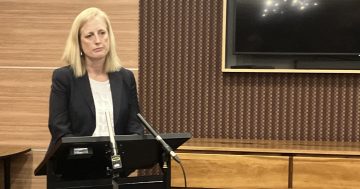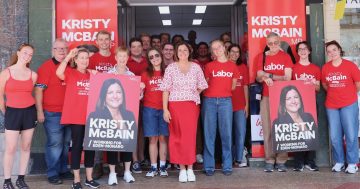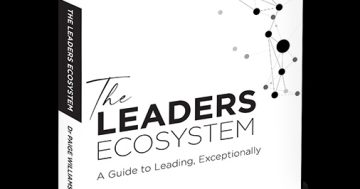Financy* says new research suggests that young women face a double whammy of financial difficulty because of the global pandemic affecting jobs.
 Being young and female sucks right now. Ok that might be a bit dramatic, but for 20 year old Melbourne-based beauty therapist Ella Akers, it’s probably not far from the truth.
Being young and female sucks right now. Ok that might be a bit dramatic, but for 20 year old Melbourne-based beauty therapist Ella Akers, it’s probably not far from the truth.
Like many millennials, Ella had to stop working once the Federal Government’s industry shutdowns were introduced in late March and she’s used up all her life’s savings just to stay afloat.
“I thought that maybe we would see a war in my life time but not a global pandemic,” she says.
“I even tried to talk to my parents about what we should do next but they don’t know because they haven’t seen anything like this before either.”
From a jobs perspective, young females have been one of the most adversely affected by the impact of the Coronavirus.
According to the latest fortnightly payroll data released by the Australian Tax Office and the Australian Bureau of Statistics (ABS), between mid-March and mid-June, women under the age of 20 have lost 18 per cent of jobs, compared to 13 per cent for young males, and six per cent across the economy overall.
“Concerningly, we’ve also seen a fall in the female participation rate to the lowest level in almost 15 years,” says Joanna Masters Chief Economist at Ernst & Young (EY).
“This will be a challenge in the recovery as they must first be enticed back into the workforce before they can start looking for a job.”
The focus on younger Australians matters more now than ever as our inability to shake off a global pandemic, particularly as it re-emerges in Victoria, pushes Australia well into its first recession since 1992.
For millennials it’s particularly tough and they could be the unluckiest generation ever in a financial sense, particularly when you consider the already high cost of buying property in most Australian cities.
According to EY analysis of census data from the ABS, the majority of a person’s lifetime income growth occurs in the first ten years after they enter the workforce.
So, if you’re a 20-something Melbournian like Ella, this would normally put you in the sweet spot for seeing your income rise by 133 per cent over the next decade.
But these aren’t normal times, even for those who are already employed, recessions hurt the hip pocket and tend to materialise in lower wages growth and fewer job opportunities.
EY modelling suggests that this recession could result in a 9 per cent drop in income growth for the average 21 year old over the next decade.
On top of that, being female means that Ella faces a double whammy of lost income and superannuation, if at some time in the next decade, she decides to take a career break or reduce her paid working hours to raise children.
“It’s the not knowing and my unstable financial position that are pretty scary to deal with,” says Ella.
“It has definitely affected my mental health. I see a psychologist regularly anyway but even though I don’t have work right now I have been trying to keep that going.
“I’ve done that twice while in isolation and that’s really helped me to make sense of the world.
“I live in a house with three other people. First my fiancé has lost her job in hospitality and she is still trying to get Centrelink.”
“My other housemate has also lost her job in hospitality and she is just starting to get Centrelink payments now and her boyfriend who works in construction, was having to pay for her portion of the rent for a while,” she says.
Since March, Ella’s work has been unstable and even obtaining government assistance has been a bit of a challenge.
“Before the Coronavirus struck, I was working four days a week earning about $500 to $600 a week but once my work had to shutdown, I was without an income for a month and was trying to sort out Youth Allowance through Centrelink.
“That was difficult because the first two payments were incorrect and were half of what they should have been – so that was $1000 to live off for the month and if I hadn’t had any savings, I wouldn’t have been able to afford my $120 a week rent.
“My partner and I had been saving up to go around Australia in a campervan but all of that has been spent now on rent, doctors’ appointments and groceries. It did take a while for us to get Centrelink payments,” says Ella.
Financial expert and author of the personal finance book Budget’s Don’t Work (but this does) Melissa Browne says the important thing for millennials to do now – if they can – is to ensure they are putting a buffer of three months’ worth of expenses, particularly if they are in income that is transient or casual.
“And to also make sure that they’re not simply enjoying today but are also putting cash savings aside so that they can take advantage of discounted assets,” she says.
*Financy creates and publishes a variety of content on women’s money matters.
This article first appeared at financy.com.au











